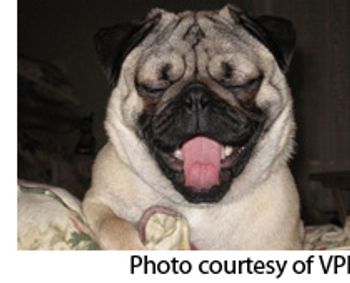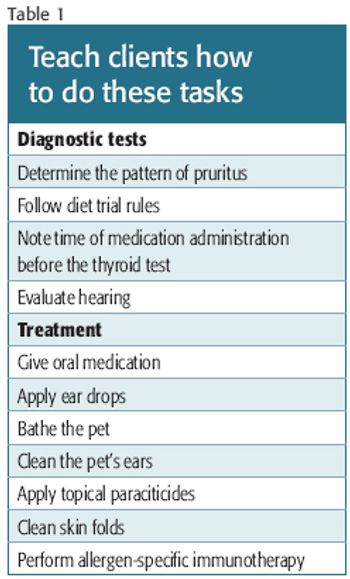
Personalize cups.

This former veterinary team member nearly starved her pet to death.

Use these steps to safely wrap and restrain a cat.

Here's what you can do to protect your legal rights after a layoff or termination-and plan for a brighter future.

Help clients offer their diabetic pets better veterinary nutrition to improve their health.

Q. How can I help clients choose the best pet insurance plan?

Document everything, and four other tips to help identify and report potential animal abuse

Getting the most out of your staff helps all involved.

Hey technicians: Tired of feeling helpless when disaster strikes? There are many organizations seeking your expertise. You just have to find the one that's right for you.

Dealing with unhappy clients is just the beginning.

Happy receptionists make for happy clients and a more pleasant workplace. Take these tips to heart and your team will love you.

Are you on the fence about putting in the extra work to receive those three little letters? This expert says it's worth your time.

We just launched our newest Team Meeting in a (Virtual) Box. Now you can teach your whole team how to cope with Cushing's syndrome.

VPI honors Harley the pooch with the Hambone Award for this year's most unusual pet medical claim.

Use these clips to organize your veterinary patient files.

Avoid these five tweeting styles that will get on your veterinary clients' and potential clients' nerves.

When this veterinary technician prepared for a volunteer trip to Thailand, she quickly realized her original plan was about to an unexpected turn.

When clients purchase veterinary products elsewhere, don't get mad-change your strategy.

Here's the truth about ticks.

Q: How can I bust these myths without offending veterinary clients?

Q: How can veterinary clients fight their pet's obesity problems?

Here's what to say when veterinary clients ask for a discount.

Q: What can our veterinary team do to get the most accurate results from a urinalysis?

When clients panic about the price of veterinary care, share this wisdom.

Pointers for cat owners permeate this handy resource and help ensure that all your feline patients are receiving the best care.

Here are answers to the most commonly asked questions.

Learn this trick and relate to veterinary clients on a personal level.

Whether cleaning the ears of floppy-eared dogs or setting up the exam room, technicians are an important part of dermatology case management.

Hemotropic parasites are often associated with hemolytic anemia.